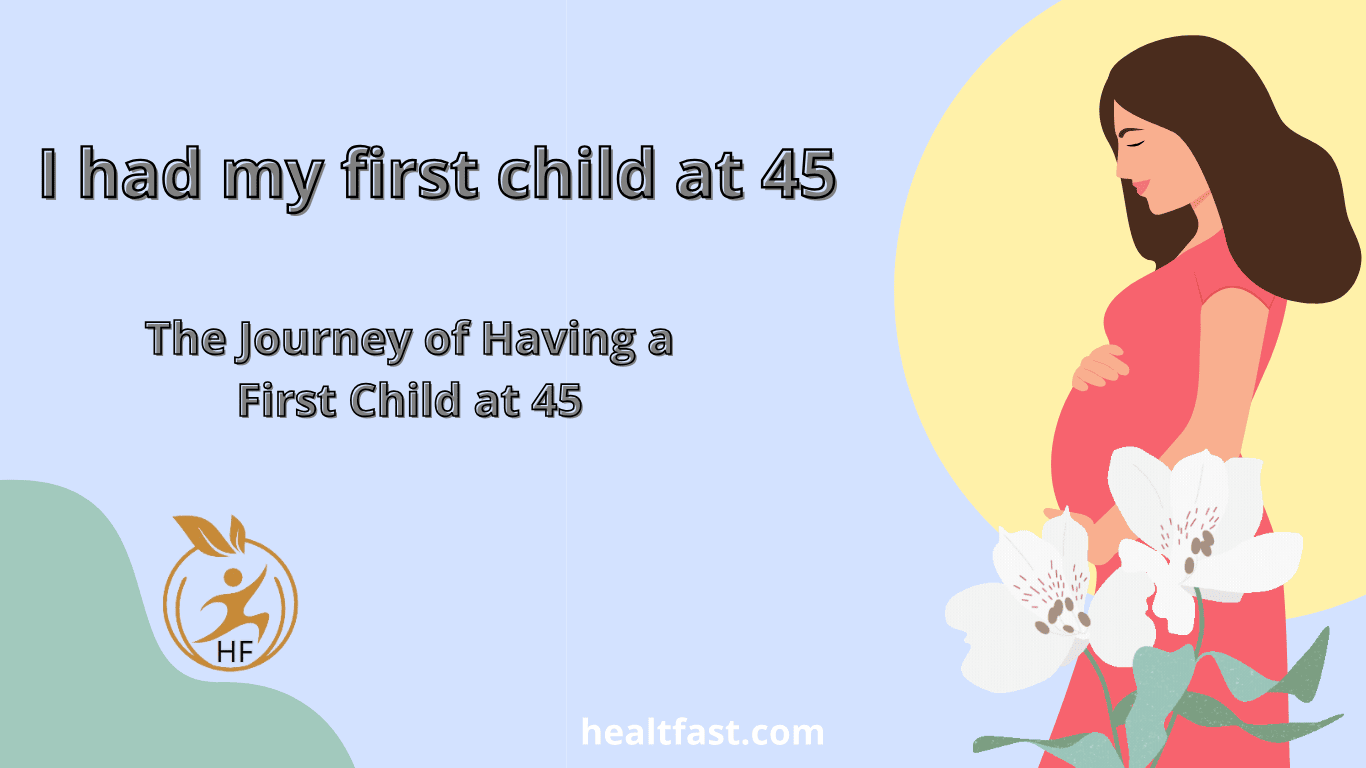Becoming a mother is a transformative experience, and the age at which this journey begins varies for each woman. In recent years, a growing number of women have embraced motherhood later in life, challenging societal norms and reshaping perceptions. This article explores the unique aspects, challenges, and emotional dimensions of having a first child at the age of 45.
Late Motherhood Trends:
Shifting Norms: Traditionally, motherhood was associated with younger ages, but societal changes have led to a rise in women choosing to have children later in life. Factors such as career pursuits, financial stability, and personal choices contribute to this shift.
Lear more about the Late Motherhood – Pregnancy and Childbirth After 40
Personal Considerations for Delayed Motherhood:
- Balancing Priorities: Women who have their first child at 45 often do so after careful consideration of various factors. Career goals, relationship dynamics, and the desire for emotional and financial stability play significant roles in this decision.
Fertility Challenges at 45:
- Biological Realities: At 45, women experience a decline in fertility due to aging ovaries. Conceiving naturally becomes more challenging, and many women turn to assisted reproductive technologies, such as in vitro fertilization (IVF), to fulfill their dream of motherhood.
Medical Interventions:
- Assisted Reproductive Technologies: The journey to motherhood at 45 frequently involves medical interventions. IVF, egg freezing, and donor eggs are among the options explored to overcome fertility challenges and increase the chances of a successful pregnancy.
Emotional Landscape:
- Joy and Challenges: Having a first child at 45 brings a unique emotional experience. The joy of becoming a mother may be accompanied by concerns about energy levels, health, and the ability to keep up with the demands of parenting.
Support Systems:
- Partner and Family Roles: Building a strong support system is crucial for women embarking on motherhood at 45. The roles of partners, family, and friends in providing emotional, physical, and practical support become pivotal during this journey.
Prenatal Care and Health Considerations:
- Specialized Care: Women having their first child at 45 often require specialized prenatal care. Close monitoring of both the mother’s and the baby’s health is essential to address potential risks associated with advanced maternal age.
Community and Resources:
- Connecting with Peers: Joining communities or seeking resources that cater to women experiencing motherhood at an older age can be beneficial. Sharing experiences, advice, and tips can create a sense of community and support.
Celebrating Late Motherhood:
- Positive Narratives: Embracing late motherhood is about celebrating the diversity of family-building journeys. Sharing positive narratives of women who had their first child at 45 can inspire others, fostering a more inclusive and supportive societal outlook.
Having a first child at 45 is a deeply personal and empowering choice. This journey encompasses a blend of emotional fulfillment, unique challenges, and the resilience of the human spirit. As societal perceptions continue to evolve, the stories of women embracing motherhood at later stages contribute to a broader understanding of the diverse paths to creating a family.




